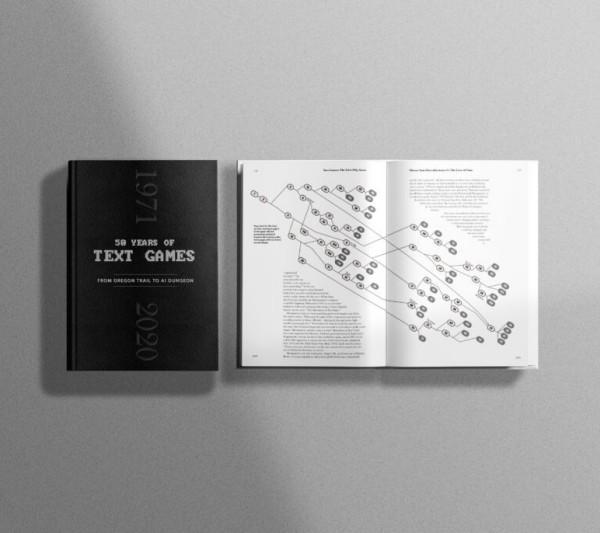Reed’s book—which has over 620 pages of analysis, code samples, photographs, maps, flowcharts, footnotes, asides, cross-references, and other details—thoroughly backs up this claim. Text games, in both their earliest parser form and in more modern incarnations, are a fascinating space in which people have pulled off amazing feats, and innovations continue today. Many of the earliest text games mastered key aspects of world-building, narrative shaping, and player choice that some modern games, with exponentially more resources at their disposal, still struggle with.
Reed, a writer and game designer himself, picks one game for every year from 1971 through 2020. He adds an involving dive into the pre-1970s history of experiments, games, and brutally unforgiving code. Each decade also gets its own introduction, and there are summaries of 500 other text games included. Each of the game picks started out as a post on his Substack, though they have been revised and more deeply integrated with their historical context in the book.
There are classics you might expect, like Adventure, MUD, Hitchhiker’s Guide, and Trade Wars. There are definition-stretching inclusions, like the original Choose Your Own Adventure book, The Cave of Time, and Dwarf Fortress. And there are probably at least 20 games most of us have never encountered.
The article linked below contains some answers by Reed about this fascinating book.

